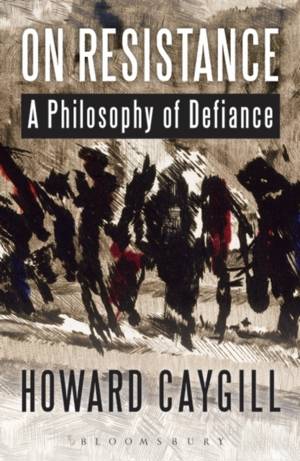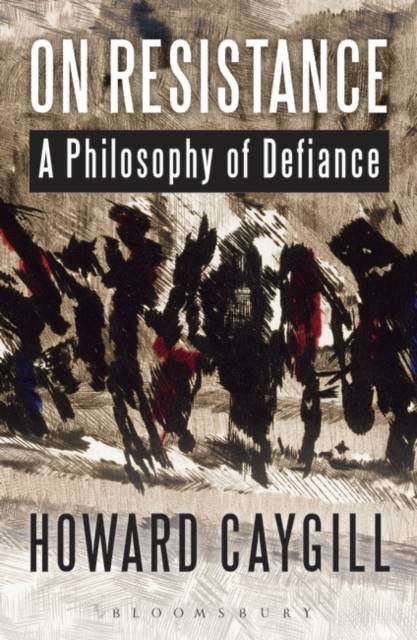
- Afhalen na 1 uur in een winkel met voorraad
- Gratis thuislevering in België vanaf € 30
- Ruim aanbod met 7 miljoen producten
- Afhalen na 1 uur in een winkel met voorraad
- Gratis thuislevering in België vanaf € 30
- Ruim aanbod met 7 miljoen producten
Zoeken
€ 121,45
+ 242 punten
Uitvoering
Omschrijving
No word is more central to the contemporary political imagination and action than 'resistance'. In its various manifestations - from the armed guerrilla to Gandhian mass pacifist protest, from Wikileaks and the Arab Spring to the global eruption and violent repression of the Occupy movement - concepts of resistance are becoming ubiquitous and urgent. In this book, Howard Caygill conducts the first ever systematic analysis of 'resistance': as a means of defying political oppression, in its relationship with military violence and its cultural representation.
Beginning with the militaristic doctrine of Clausewitz and the evolution of a new model of guerrilla warfare to resist the forces of Napoleonic France, On Resistance elucidates and critiques the contributions of seminal resistant thinkers from Marx and Nietzsche to Mao, Gandhi, Sartre and Fanon to identify continuities of resistance and rebellion from the Paris Commune to the Greenham Women's Peace Camp. Employing a threefold line of inquiry, Caygill exposes the persistent discourses through which resistance has been framed in terms of force, violence, consciousness and subjectivity to evolve a critique of resistance. Tracing the features of resistance, its strategies, character and habitual forms throughout modern world history Caygill identifies the typological consistencies which make up resistance. Finally, by teasing out the conceptual nuances of resistance and its affinities to concepts of repression, reform and revolution, Caygill reflects upon contemporary manifestations of resistance to identify whether the 21st century is evolving new understandings of protest and struggle.
Beginning with the militaristic doctrine of Clausewitz and the evolution of a new model of guerrilla warfare to resist the forces of Napoleonic France, On Resistance elucidates and critiques the contributions of seminal resistant thinkers from Marx and Nietzsche to Mao, Gandhi, Sartre and Fanon to identify continuities of resistance and rebellion from the Paris Commune to the Greenham Women's Peace Camp. Employing a threefold line of inquiry, Caygill exposes the persistent discourses through which resistance has been framed in terms of force, violence, consciousness and subjectivity to evolve a critique of resistance. Tracing the features of resistance, its strategies, character and habitual forms throughout modern world history Caygill identifies the typological consistencies which make up resistance. Finally, by teasing out the conceptual nuances of resistance and its affinities to concepts of repression, reform and revolution, Caygill reflects upon contemporary manifestations of resistance to identify whether the 21st century is evolving new understandings of protest and struggle.
Specificaties
Betrokkenen
- Auteur(s):
- Uitgeverij:
Inhoud
- Aantal bladzijden:
- 264
- Taal:
- Engels
Eigenschappen
- Productcode (EAN):
- 9781472522580
- Verschijningsdatum:
- 26/12/2013
- Uitvoering:
- Hardcover
- Formaat:
- Genaaid
- Afmetingen:
- 132 mm x 201 mm
- Gewicht:
- 385 g

Alleen bij Standaard Boekhandel
+ 242 punten op je klantenkaart van Standaard Boekhandel
Beoordelingen
We publiceren alleen reviews die voldoen aan de voorwaarden voor reviews. Bekijk onze voorwaarden voor reviews.








